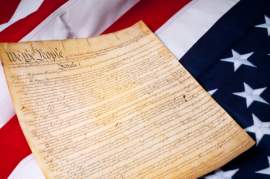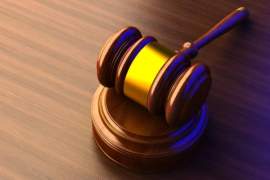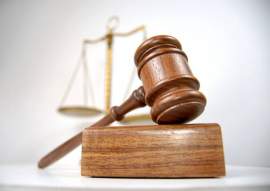
Understanding Debate of Judicial Review

Popular In Constitution
Purpose Of Lifetime Appointment And Pros And Cons Enumerated Powers Bicameral Legislature Background Article 3 Of The Constitution We The People 1st Amendment Who Wrote The Constitution Judicial Review Equal Protection Clause 5th Amendment 10th Amendment Three Fifths Compromise
Upon institution of judicial review and democracy, the Supreme Court had created a precedence by which future cases were to be handled. Despite its existence for the sake of an improved judicial system, much debate has occurred over the years concerning its legitimacy as well as the role of the Supreme Court in judicial review. This debate has created a specified divide when concerning the Supreme Court.
One of the issues that has been brought up is the
fact that Supreme Court Justices appear to give too much respect to the
Legislature, even when certain laws seem unconstitutional. Many reside on the
aforementioned side of the debate, while still others feel that Supreme Court
Justices do well in giving legislation the benefit of the doubt when dealing
with their questioned constitutionality. These individuals believe that
decisions determining constitutionality must be heeded.
Such a
debate falls upon the power that Supreme Courts seem to possess within the
realm of judicial review and democracy. It is thought that such overwhelming
power to decide constitutionality may be, instead, limiting the contributing
authorities of other aspects of democracy. Some are quite concerned with the
amount of power one individual may have in terms judicial review.
Another area of debate within the venue of
judicial review and democracy is that which concerns the argument of
'institutional dialogue'. This states that both courts and legislatures join
together in a conversation with the express purpose being to attain a balance
between that of both Constitutional standards as well as public codes of
procedure.
Although
this does create a strong basis by which support may be garnered for such
judicial review, it may also possess limits as well. Limits include that the
type of dialogue needed to be presented may be that which is actually
impossible in terms of realization. This is due to the fact that such
communication will have to have been so clear, calculated, and concise as to
ensure that both sides had participated in concurrence with each other, while
in pursuit of a just ruling.
In addition to this is that, in the opinion of
some groups, judicial review and democracy may not actually go hand in hand
with each other. An argument posed by some includes that of the connection
between political righteousness and that of democracy. If such a relationship
does exist, then it seems that the Legislature, and not courts, should actually
possess authority over final rulings and decisions. Therefore, the institution
of judicial review may be seen by some as a counteraction against democracy
since judges assume complete power in relation to rulings as well as decisions
to overturn decisions based on their own personal interpretation of what must
be deemed Constitutional.
The debate remains as to whether or not judicial review actually does go against the realm of democracy, but for as long as such a practice continues, arguments will never subside as there will always be an unsatisfied party.
NEXT: What Comes To Mind When You Hear "Treason"




















